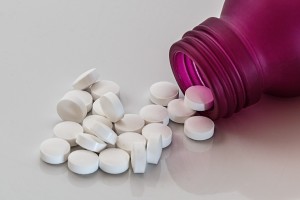Histamine Intolerance Supplements
 If your histamine intolerance symptoms are extremely severe, then in addition to adhering to the Strictly Low Histamine Diet you may wish to take some additional supplements. Here are some suggestions.
If your histamine intolerance symptoms are extremely severe, then in addition to adhering to the Strictly Low Histamine Diet you may wish to take some additional supplements. Here are some suggestions.
* Low-acid Vitamin C 1000 mg twice daily.
Note: Standard Vitamin C supplements work well too, but but if you are taking high doses you may experience a burning or irritating sensation in the urinary tract. People with certain conditions such as interstitial cystitis, prostatitis and stomach ulcers often have a hard time tolerating high-acid vitamin C supplements.
* Vitamin B6 100 mg once daily.
Note: never exceed the recommended dose.
Your body needs Vitamin C and vitamin B6 to manufacture the DAO enzyme, which helps break down histamine in the body. Copper is also necessary for DAO production, but too much copper can be toxic. If your diet includes variety of fresh, unprocessed foods it will already provide you with sufficient copper and you won’t need copper supplements.
* Digestive enzymes, one capsule before each meal. Choose a broad spectrum formula, including digestive enzymes to break down both protein (such as pepsin) and carbohydrates (such as amylase). Those who are histamine intolerant need help digesting protein, so that it does not linger in the gut fermenting and producing bacteria and histamine.
* Vira Stop is an enzyme formula dedicated to breaking down protein. The recommended dose is 2 capsules daily. Begin gradually, by taking half a capsule per day and build up to 2 capsules over a few weeks. You should take this supplement on an empty stomach – i.e. either one hour before you eat or two hours afterwards. Never swallow probiotics and Vira Stop at the same time because they can interfere with each other.
* Probiotics. There are two species that actually cause histamine to be released in the body and those are Lactobacillus casei and Lactobacillus bulgaricus. Avoid them. Two very important types for people with histamine intolerance are Bifido infantis and Bifido longum. Take any probiotic supplement that contains both of these.
* Zinc inhibits the release of histamine from mast cells. Take 50mg of zinc per day, with a meal containing starch. This helps your body to absorb the zinc.
Remember that what you leave out of your diet to control histamine levels is probably even more important than what you take in via supplements.
Taking every recommended supplement will have little effect if you are still eating histamine-rich or histamine-triggering foods. Consult the book for the complete diet.
Health and medical information disclaimer:
The information provided on this website is intended only to aid you in making informed decisions about your health. It is not intended to be a substitute for advice and treatment prescribed by a registered dietitian, nutritionist or doctor. The content of this website may not be used as a basis or means for any form of self-diagnosis. If you suspect that you have a medical problem, we urge you to seek the help of a medical practitioner.

 Antihistamines
Antihistamines